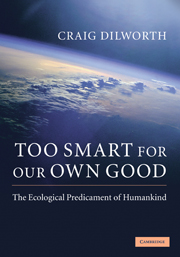Book contents
- Frontmatter
- Contents
- List of figures and tables
- Preface
- Introduction
- 1 Scientific ground rules
- 2 The new views in anthropology, archaeology and economics
- 3 Theoretical background to the vicious circle principle
- 4 The vicious circle principle of the development of humankind
- 5 The development of humankind
- 6 The vicious circle today
- 7 … and too dumb to change
- Conclusion
- Glossary
- Notes
- References
- Index
2 - The new views in anthropology, archaeology and economics
Published online by Cambridge University Press: 25 January 2011
- Frontmatter
- Contents
- List of figures and tables
- Preface
- Introduction
- 1 Scientific ground rules
- 2 The new views in anthropology, archaeology and economics
- 3 Theoretical background to the vicious circle principle
- 4 The vicious circle principle of the development of humankind
- 5 The development of humankind
- 6 The vicious circle today
- 7 … and too dumb to change
- Conclusion
- Glossary
- Notes
- References
- Index
Summary
The traditional or Western perspective on the development of humankind goes back at least to Thomas Hobbes, who believed that in humankind's natural condition there is “continual fear and danger of violent death; and the life of man [is] solitary, poor, nasty, brutish, and short. [It] is a condition of war of everyone against everyone.” We have an expression of this perspective in the case of a modern writer where we read reference being made to the horticultural revolution as:
that revolution whereby man ceased to be purely parasitic and, with the adoption of agriculture and stock-raising, became a creator emancipated from the whims of his environment.
And where, with reference to the rise of agriculture in Mesopotamia, the same writer states that:
An all round advance is obvious. Emmer wheat and barley were now certainly cultivated, and two breeds of cattle as well as sheep, goats and pigs were kept.
A recent newspaper article expresses the same perspective:
The emergence of settled agriculture was a boon to humanity. Life became less subject to the vagaries of weather and the availability of wild animals. Human beings began to control their environment rather than the other way around.
On the traditional perspective it is taken as axiomatic that, as regards technological development and demographic and social change, the former has been the cause and the latter the result. Why do populations grow? Because new sources of food are constantly being discovered and made available by technological improvements.
- Type
- Chapter
- Information
- Too Smart for our Own GoodThe Ecological Predicament of Humankind, pp. 50 - 98Publisher: Cambridge University PressPrint publication year: 2009

